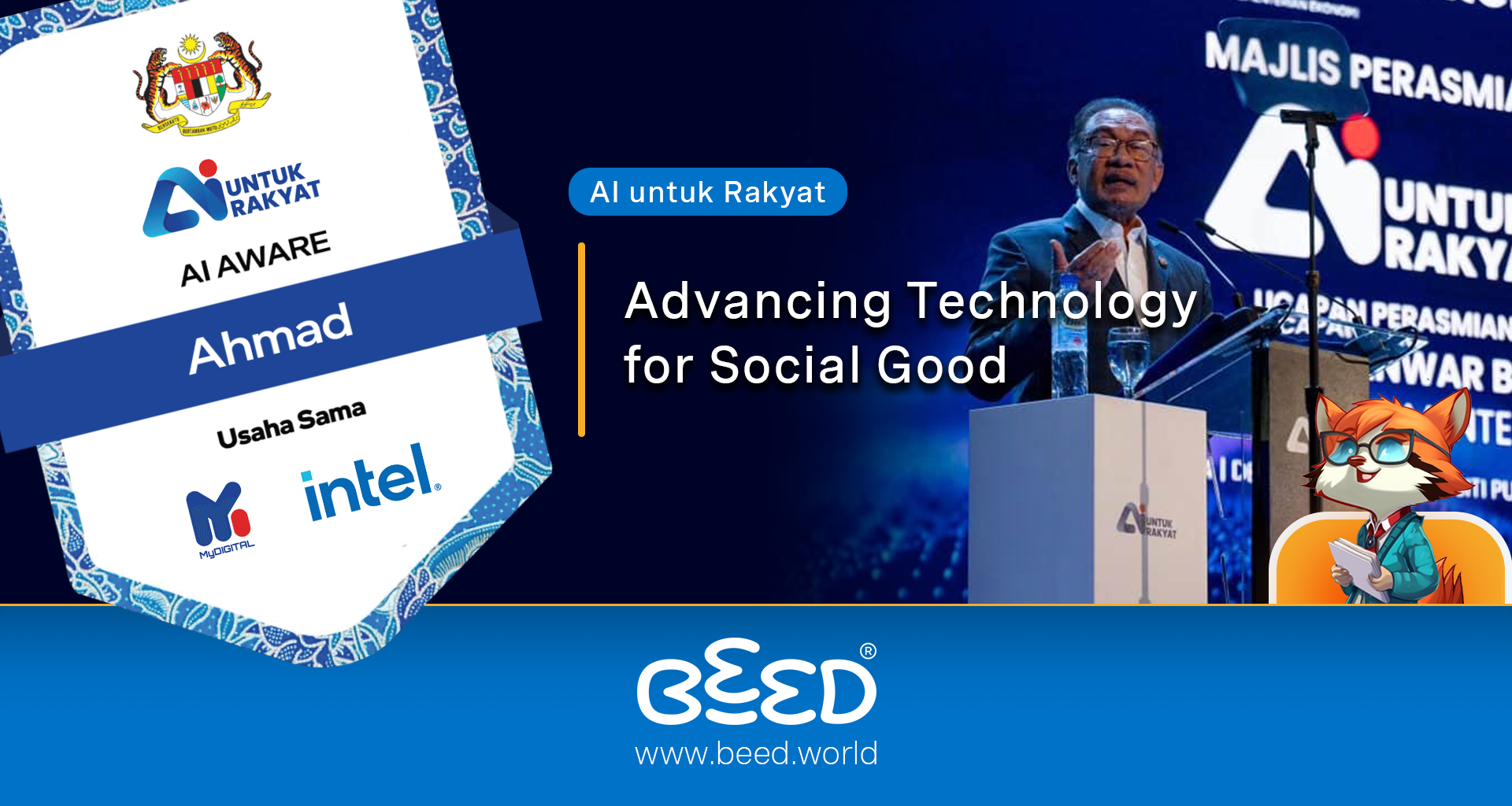AI untuk Rakyat: Advancing Technology for Social Good

Artificial Intelligence (AI) continues to revolutionise various sectors worldwide. In Malaysia, the "AI untuk Rakyat" initiative is making significant strides in leveraging this technology for the benefit of the public. The AI Untuk Rakyat website, which is available in English, Malay, Mandarin, and Tamil, was introduced by the government earlier in January as a way to introduce Malaysians of all backgrounds to the technology and its potential. More than a million Malaysians had finished the course's two modules as of June. This ambitious programme, launched to harness the power of AI for societal advancement, is dedicated to improve education, healthcare, public services, and economic development. Here, we delve into the recent progress of "AI untuk Rakyat," highlighting its achievements and future prospects.
Enhancing Education
One of the primary focus areas of "AI untuk Rakyat" is education. The initiative has made remarkable progress in integrating AI into the educational system, aiming to provide equitable and quality education to all students across Malaysia. AI-driven platforms are now being used to offer personalised learning experiences, tailoring educational content to meet the individual needs of students. These platforms can identify learning gaps, suggest tailored resources, and provide real-time feedback, thereby enhancing the overall learning process. Moreover, AI is being used to develop interactive and engaging educational content. Virtual tutors, powered by AI, are available 24/7, assisting students with their queries and helping them understand complex subjects. This has been particularly beneficial in remote and underserved areas, where access to quality education resources is often limited.
Improving Healthcare
In the healthcare sector, "AI untuk Rakyat" has made significant contributions to improving diagnostic accuracy and patient care. AI algorithms are now being used to analyse medical data and assist in diagnosing diseases with greater precision. For example, AI-powered imaging systems can detect early signs of diseases such as cancer, allowing for timely intervention and treatment. Telemedicine services have also been enhanced through AI, providing remote consultations and continuous monitoring of patients. This is especially crucial in rural areas where healthcare facilities are scarce. AI-driven health applications offer personalised health advice, track patients' health metrics, and even predict potential health issues based on historical data.
Streamlining Public Services
"AI untuk Rakyat" is also focused on enhancing the efficiency and accessibility of public services. AI chatbots and virtual assistants have been deployed across various government platforms to assist citizens in navigating public services, answering queries, and providing essential information. These AI systems help reduce waiting times and improve the overall user experience. Additionally, AI is being used to analyse large datasets to identify trends and patterns, enabling better decision-making in public policy and resource allocation. By optimising public services, AI is helping to create a more responsive and effective government that can better serve its citizens.
Boosting Economic Development
Economic development is another critical area where "AI untuk Rakyat" is making a tangible impact. AI-driven analytics are being used to support small and medium-sized enterprises (SMEs) by providing insights into market trends, customer preferences, and operational efficiencies. This helps businesses make informed decisions, optimise their operations, and stay competitive in the market. Moreover, AI is fostering innovation and entrepreneurship by providing tools and resources that enable the development of new products and services. Startups and innovators are leveraging AI technologies to create solutions that address local challenges, thereby contributing to economic growth and job creation.
Addressing Challenges and Ensuring Ethical AI
While the progress of "AI untuk Rakyat" is commendable, it also brings to light certain challenges that need to be addressed. Data privacy and security are paramount concerns, as the widespread use of AI involves the collection and analysis of vast amounts of personal data. Ensuring that AI systems are transparent, fair, and accountable is crucial to maintaining public trust. The initiative is committed to promoting ethical AI practices by adhering to strict guidelines and regulations. Efforts are being made to involve various stakeholders, including government bodies, private sectors, and civil society, to develop a comprehensive framework that ensures the responsible use of AI.
Future Prospects
Looking ahead, "AI untuk Rakyat" aims to expand its reach and impact further. Plans are underway to increase AI literacy among the population, providing training and resources to help individuals understand and leverage AI technologies. This includes initiatives to integrate AI education into school curriculums and offer specialised training programmes for professionals. The initiative also envisions a collaborative ecosystem where government, industry, and academia work together to drive AI innovation. By fostering a culture of collaboration and continuous learning, "AI untuk Rakyat" seeks to create a sustainable and inclusive AI landscape that benefits all segments of society.
Conclusion
"AI untuk Rakyat" stands as a testament to the transformative power of AI in addressing societal challenges and improving the quality of life for citizens. The progress made so far underscores the potential of AI to drive positive change in education, healthcare, public services, and economic development. As the initiative continues to evolve, it holds the promise of a brighter future where technology serves as a catalyst for social good, ensuring that the benefits of AI are accessible to all Malaysians.